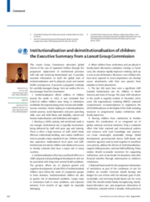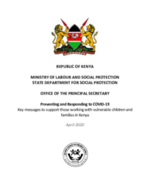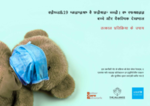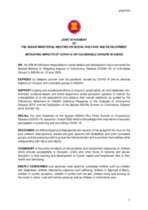Institutionalisation and deinstitutionalisation of children: the Executive Summary from a Lancet Group Commission
This Executive Summary provides an overview of the Lancet Group Commission, which advocates global reform of the care of separated children through the progressive replacement of institutional provision with safe and nurturing family-based care.




